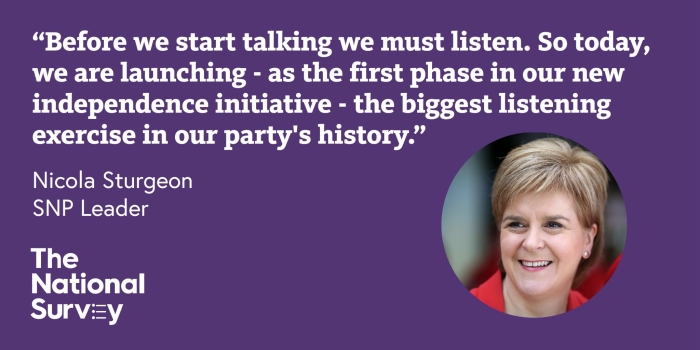The “single market” explained
(By Alex Aitchison SNP)
The Tories are still no further forward in setting out what Brexit means, beyond “Brexit means Brexit”.
The position of the UK government became even more farcical this week.
First, David Davis, the UK Government’s Brexit Secretary, told MPs that it was “very improbable” that the UK would stay in the European single market, which means people, goods and services can move freely anywhere within the EU.
Number 10 Downing Street then said that the Brexit Secretary was setting out his own view and not that of the government.
Then Theresa May was unable to answer the simple question of whether she wants to see the UK in the single market – Yes or No.
In contrast, the SNP is clear that the best outcome, not just for Scotland but for the whole UK, is to remain a member of the single market.
What is the single market?
The single market has been achieved by removing barriers to trade and having a single set of trade rules across all member states. Put simply, the aim of the EU’s single market is to make it as easy to trade between Edinburgh and Dusseldorf as it is between Edinburgh and Dundee.
What would the impact of leaving the single market be on our economy?
For businesses in Scotland, being in the single market means being able to sell goods and services to 500 million people, without paying any tariffs and without having to adhere to completely different rules in each country. An estimated 300,000 jobs in Scotland rely on our trade with the rest of the EU.
Every sensible economic commentator recognises that leaving the EU will weaken our economy. This would be compounded if the Tories took us out of the single market as well.
One important example is the financial services sector in Scotland, which employed around 86,300 people in Scotland in 2014. Outside the single market, the Scottish financial sector would have no access to the financial services passport. This will mean firms cannot operate across the single market under a single licence. According to the Institute for Fiscal Studies (IFS) “No deal short of (near-full) single market membership would give similar access to that conferred by ‘passporting rights’”. Analysis by PwC has found that the impact on the financial services sector would be negative, reducing the sector’s output in both the medium and longer term.
Membership of the single market has also been vital to attracting investment into Scotland in recent years. In 2015 Scotland secured more foreign direct investment (FDI) than any nation or region of the UK except London. Since 2006, EY have estimated that 40,000 jobs have been created in Scotland as a result of FDI. However, the OECD has concluded that “if access to the single market was lost, lower FDI inflows would seem unavoidable, reducing the inflows of new ideas and knowledge into the UK. This would weaken fixed investment, reduce export capacity and hit innovation and productivity (technical progress) over time.”
What is the rest of the world saying?
The EU
Donald Tusk, President of the EU Council, has said that membership of the single market “requires acceptance of all four EU freedoms – including freedom of movement. There can be no single market à la carte.”
Jean-Claude Juncker, President of the European Commission has said: “those who want to have free access to our internal market have to implement our freedoms without exceptions and without nuances”.
France
President Hollande has said that for the UK to remain in the single market it must accept free movement: “There cannot be freedom of movement of goods, free movement of capital, free movement of services if there isn’t a free movement of people…It will be a choice facing the UK – remain in the single market and then assume the free movement that goes with it or to have another status.”
Germany
Angela Merkel, Chancellor of Germany said: “whoever would like to have free access to the European internal market will also have to accept all basic freedoms in return, including the free movement of people.”
Italy
Matteo Renzi, the Italian Prime Minister, said it is impossible “to speak only about [the] single market and not accept a politics about migration.”
Norway
Without membership of the European Free Trade Association (EFTA), the UK could not be a member of the European Economic Area. However, Norway’s European affairs minister, Elisabeth Vik Aspaker has said: “It’s not certain that it would be a good idea to let a big country into this organisation. It would shift the balance, which is not necessarily in Norway’s interests.”
Find out more about what this means in practice here.
Japan
The Japanese government has produced a fiften-page dossier that sets out in detail the potential implications of leaving the single market: a loss of company headquarters; a hit to exports; turmoil in labour markets; damage to financial services, and cuts to research and development investment.
The document warns that “Japanese businesses with their European headquarters in the UK may decide to transfer their head-office function to continental Europe if EU laws cease to be applicable in the UK after its withdrawal.”
It also calls for the UK to “maintain access to workers who are nationals of the UK or the EU”.

